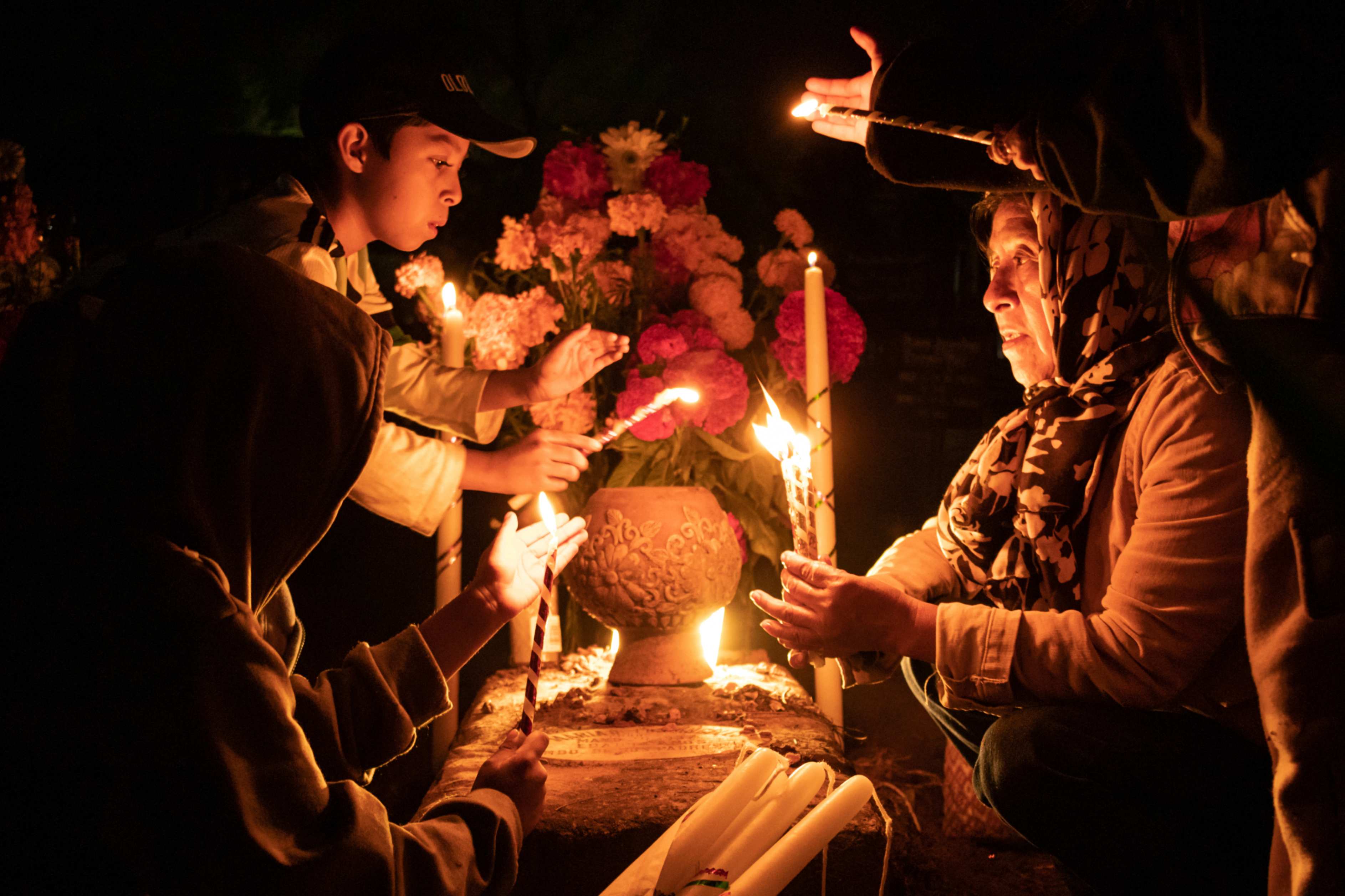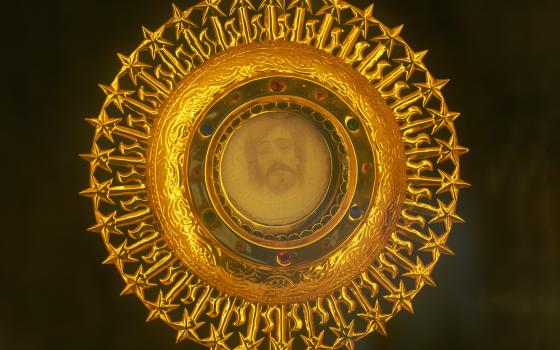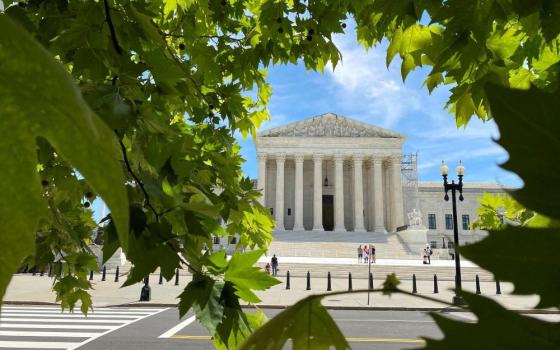
People hold candles over a tomb decorated with flowers at a cemetery in Atzompa, Mexico, Oct. 31, 2023. In a tradition that coincides with All Saints Day on Nov. 1 and All Souls Day on Nov. 2, families decorate graves with flowers and candles and spend the night in the cemetery, keeping company with their dearly departed. (AP/Maria Alferez)
I was cleaning up the yard, preparing for the upcoming winter when I found myself distracted by the upcoming feasts of All Saints' Day and All Souls' Day. When things float into my consciousness at random times, they always bring a lesson for me.
We are all familiar with the Solemnity of All Saints, a celebration of the officially recognized saints in the Catholic tradition. While by no means perfect people, they each have enough "good" for each of us to use as examples of how to live our lives. Let's take St. Francis of Assisi, for example.
By most standards, of his time as well as ours, Francis lived with mental health issues. Whether fact or fiction, according to legend, he stole from his family business, stripped naked publicly, communicated with animals, deprived himself of food and rest, and the list goes on. None of those behaviors are saintly and all signal something amiss in the human psyche.
That said, he is widely respected as a peacemaker, reaching out to those considered outcasts or enemies. He went from being a soldier trying to conquer the world to befriending the sultan — initially to convert him, but eventually in an effort to understand the "other." All too familiar birdbaths aside, many throughout the world have heard of St. Francis of Assisi and know pieces of his story. A quick check of social media will find all kinds of posts for Francis' feast day, even from non-Catholics or, for lack of a better descriptor, non-believers.
While by no means perfect people, [the saints] each have enough "good" for each of us to use as examples of how to live our lives.
All Souls' is the feast where we are given the opportunity to remember those "saints to us" — those who have impacted our lives but are largely unknown to others. Oftentimes people will look to family members, friends and others they admire. Some may be locally famous, but most are only known to their family and friends. Since not many of us know people who are officially saints, these are our personal connections.
I would include my parents and community mentors in my listing of personal saints. Among so many other things, dad taught me how to use tools and care for a car, and mom taught me how to stand up for myself. They both modeled the importance of relationships balanced with independence. My sister and I were encouraged to become whoever and whatever we wanted.
Like the official ones, my saints weren't perfect people. They had flaws and failures just like everyone else, but they had qualities that I connected with, which is why they remain important people in my life. Each of them helped me develop into the person I am today — good and bad.
Saints, check. Souls, check. But there's a third group I'm not really sure what to do with. I knew I needed to explore how I remember those who I didn't like or didn't get along with or those who hurt me (directly or not). What do I do with them at this time of remembering?
There's the long-ago co-worker who was simply nasty to anyone and everyone. The boss was afraid to terminate him as he predated just about every other employee. We ended up sharing a workspace for a while. The verbal abuse was awful, and I was ever so glad when he finally left. His death some years later brought not grief but a sense of joy (ouch).
Then there's the former friend who I discovered had sexually assaulted someone. She "got away with it" because the statute of limitations had passed. Again, there was no grief at her death. There are others as well — let's be honest, we all have "those people" in our lives.
Advertisement
I know judging another is never good. There is no way of knowing the life circumstances that cause the action I find hard or offensive or hurtful or illegal or, more drastically, globally unacceptable. I know, hanging onto hurt is not good or helpful. Hanging on to anything doesn't allow growth to happen. I know I am just as capable as anyone else to be one of "those people" to someone else.
So back to my question: how do I remember them? My initial response is I don't have to remember. I'm not old enough to have grown up with the theology of praying for the forgotten poor souls in purgatory. When it comes to those I don't like or who hurt me, my spiritual director tells me "those people" are all teaching me things — things I won't learn any other way. I'll be honest, each time she says that, I cringe. And of course, scripture reminds us to pray for those we would choose not to (Mt 5:44, Lk 6:29).
I do know what it's like to be forgotten. So maybe that's where my prayer can start from. Everyone, even the most heinous, are or were someone's beloved. I do know all saints, all souls and all "everybody else" will be an adventure in prayer!








